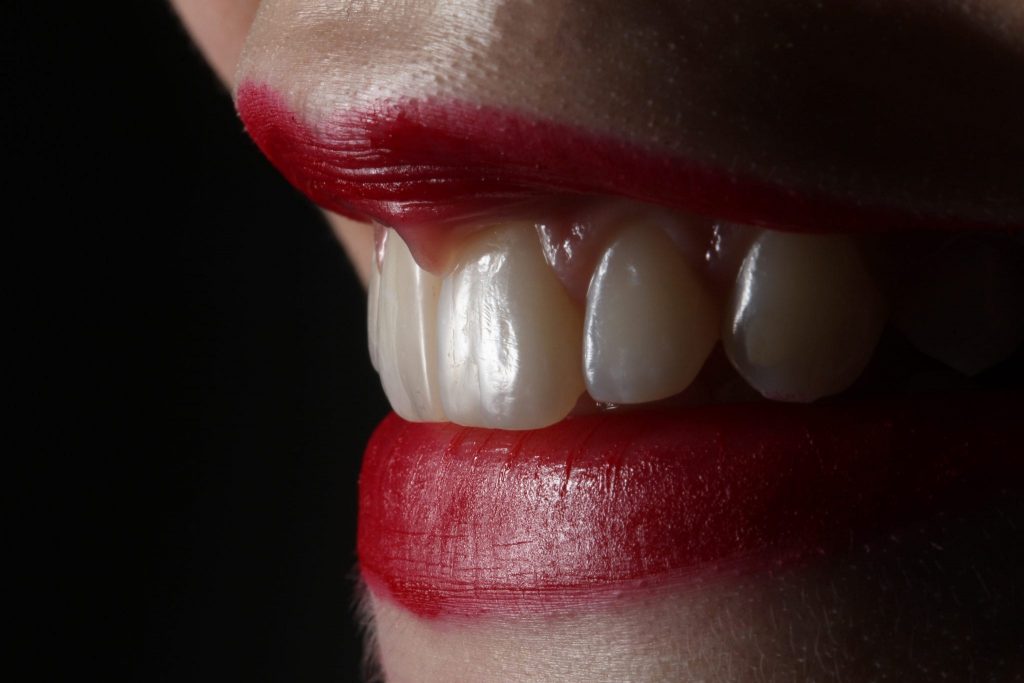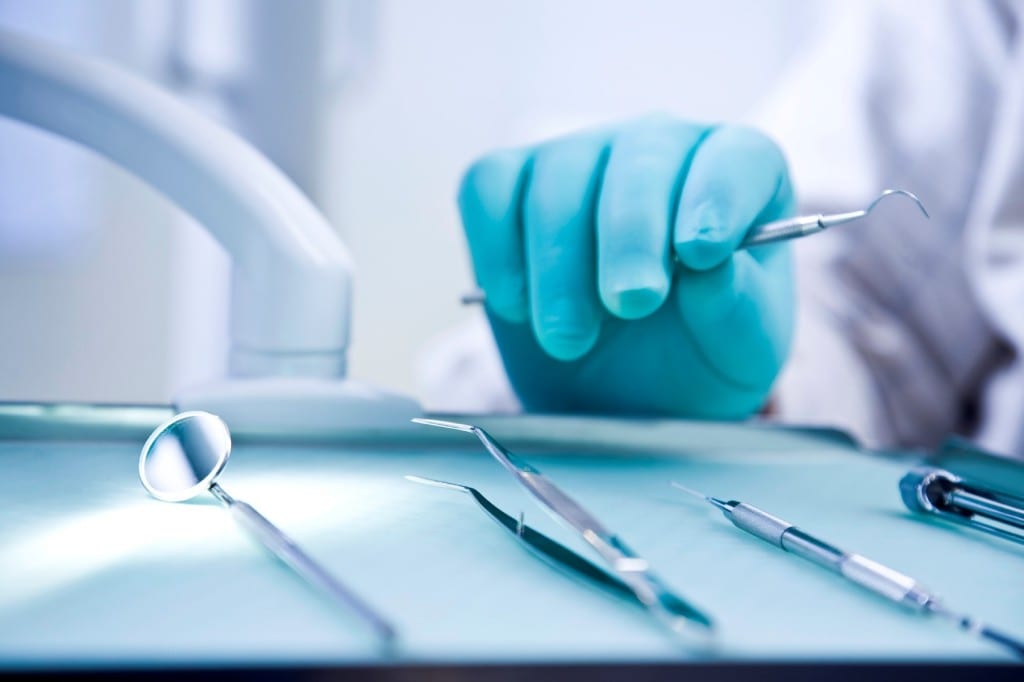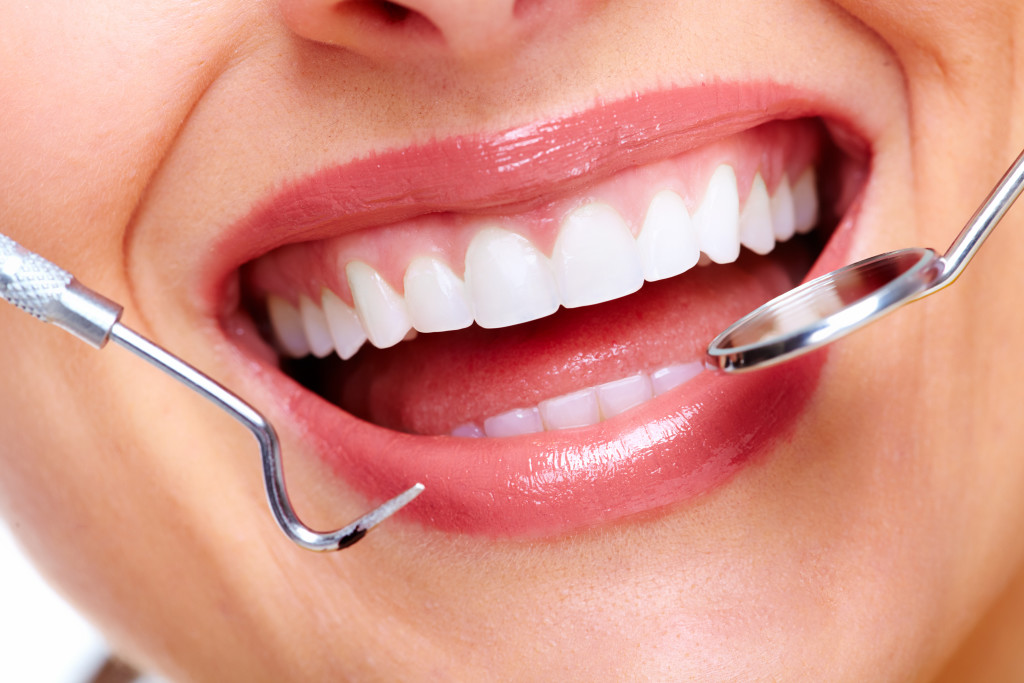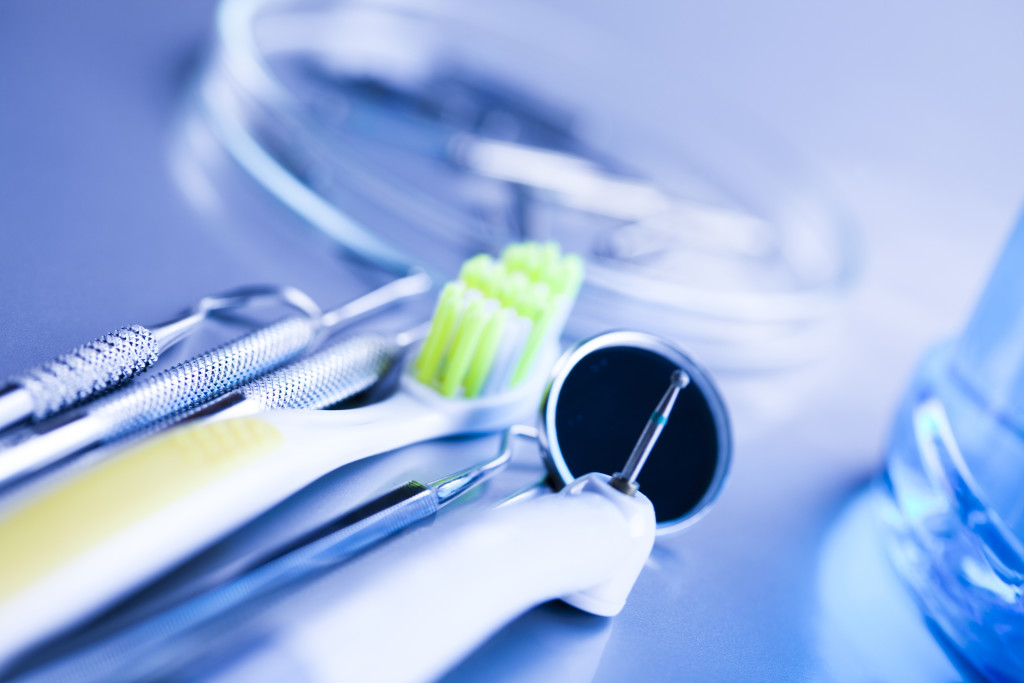
If you do not monitor the condition of the oral cavity, plaque can turn into tartar, which is much harder to get rid of. This process accelerates the deterioration of the enamel and can lead to tooth loss.
If you notice blood every time you brush your teeth, it may indicate inflammation of the gums. Another sign of gingivitis may be swelling and redness of the gums. This is due to the excessive accumulation of plaque – a thin layer that forms between the teeth and on the gum line.
What is gingivitis?
Symptoms of gingivitis are swelling and bleeding in the gum tissue, which occurs due to the accumulation of large amounts of plaque – a sticky substance that is formed when eating food and bacteria multiply in the mouth.
Plaque can also be caused by poor oral care and the abuse of certain foods (such as coffee). As a result, plaque turns into a yellowish compound, which is called teeth tartar.
As a result of this process, toxins are formed that irritate and damage the gums, thus causing the formation of large gaps between the teeth, in which the infection then spreads. As a result, teeth are severely damaged and damaged. This infection can make teeth weak and even cause them to fall out.
Gingivitis and the most common causes:
- Improper brushing, such as using a toothbrush with too stiff bristles.
Gingivitis can also occur if you do not brush your teeth after each meal and do not use floss, etc. - Emotional stress
- Hormonal failure that can occur during pregnancy and menstruation, as well as in adolescence
- Lack of nutrients in the body
- Certain diseases, such as osteoporosis or diabetes
- Taking medication or consuming certain foods. For example, gingivitis can be caused by blood thinners, antibiotics, antihypertensive drugs, immunosuppressants, or antiepileptic remedies.
What natural remedies are best for treating gingivitis?
- Make toothpaste at home by mixing equal parts of hydrogen peroxide and baking soda, and then brush your teeth thoroughly with this mixture. Pay special attention to the areas around the gums. Baking soda will help eliminate plaque and bad breath and will clean your teeth well, returning them to their former whiteness.
- Rinse your mouth every night with a mixture of warm water and half a teaspoon of salt.
- Rub the gums aloe vera pulp or figs cooked in milk several times a day.
- After the main meal (such as lunch or dinner), eat one or two pieces of mature
- Cheddar or Swiss cheese. You can also eat a slice of raw and unpeeled apple.
More ways to fight gingivitis
- Make a tea by mixing a teaspoon of dried mint, anise, rosemary, and 3/4 cup water. Boil the mixture for 10 minutes, strain it, and rinse your mouth with this tea every hour.
- Make your own mouthwash by mixing a glass of water and a teaspoon of apple cider vinegar. Rinse your mouth with this liquid every morning.
- Rinse your mouth with tea made from three drops of lavender oil and a tablespoon of natural honey dissolved in warm or cool water.
- Make a solution from a glass of hot water and two drops of myrrh (aromatic resin). Drink this liquid before and after meals, it will help to clean your mouth well.
- Throw a handful of sage leaves in a glass of hot water. Cover it and leave to infuse, and when the mixture cools, rinse your mouth with it. This liquid has antiseptic and antifungal properties, and it also helps relieve gingivitis and cleans teeth well.
- Add two tablespoons of pelargonium leaves to a glass of boiling water. Leave to infuse for 15 minutes. Strain the liquid and rinse your mouth with it twice a day.
- Boil a glass of water with two tablespoons of dried mallow root for 5 minutes. Wait for the liquid to cool slightly and rinse your mouth with it several times a day.
- Beat in a blender half a glass of any berries, half a glass of milk, a teaspoon of vanilla extract, and one sliced banana until smooth. Drink this smoothie for breakfast. Berries help kill bacteria that cause gingivitis.
Picture Credit: Unsplash






